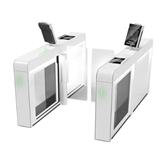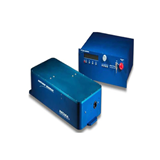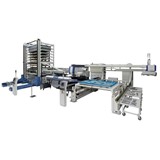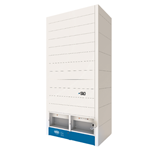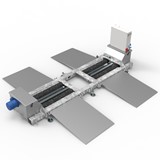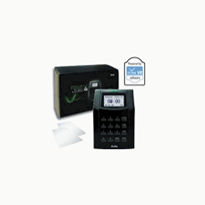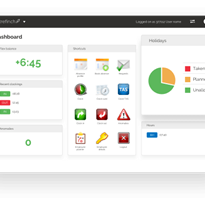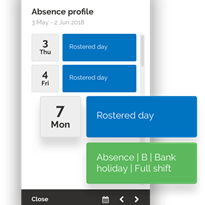Fenner Dunlop use the Epicor Service Orientated Architecture (SOA) Version 8 ERP system to run their manufacturing, distribution and financial operations. They also use it to invoice customers for their service work.
Service time worked at remote customer sites is recorded using the specialist Kronos time and attendance system.
Customer service requirements have necessitated a complex system of work types, charge out rates and allowances. Several hundred transactions need to be processed each day for many different customers, jobs and rates. Prior to the introduction of the Epicor ERP system this was largely a manual exercise and required 18 people for 90 hours to look after the charge outs.
The Challenge
There are a number of challenges to integrating complex dynamic, large and remote time and attendance system with an ERP system. In particular the Epicor-Kronos interface required:
- That the base system captures the employee, location, job number (linked to the customer), hours, type of work and the date. Labour time must be recorded against Epicor Field Service jobs so the customer can be invoiced on the basis of work done. Data is also required to update the general ledger, job cost ledger and customer accounts.
- That the interface handles changes (positive or negative) by employees to their timesheet records within the pay period even if they already have been updated within Epicor.
- That the interface takes care of updates to timesheet records by Head Office after the pay period has been closed or after the customer has been invoiced.
- Translation where the codes are different in each system, for example the company code. It required validation where errors are possible, for example a job number from the wrong location and then an error handling mechanism to deal with such errors.
- The ability to charge and issue materials to jobs based on the type of charge out code.
The various challenges suggested an Epicor SOA approach using Epicor’s Service Connect module rather than a traditional programming one. The estimate for the work was in the order of 7-9 days using Epicor SOA. This compares to 20–30 days of specification, programming and testing time using traditional programming techniques.
Advantages of Epicor SOA (Service Connect Module)
With Epicor’s Service Connect module all Epicor programs are enabled as Web Services. Essentially the interface is running Epicor programs with the same functionality as when data is entered directly from a keyboard. Reduced cost and speed of development are some of the advantages to the traditional programming approach.
The primary advantage is that Service Connect is much better placed to deal with future enhancements than traditional development. Because the interface needs to update multiple tables consistently, it also needs to deal with all the potential errors that would be encountered by a data entry person. Examples are: entering a job that had not been started, a job which was in the wrong plant or a closed job. The interface may need to take different paths, for example for an allowance which is not chargeable to the customer or for a negative adjustment. SOA is best placed to deal with the increasing expectations and scope of modern ERP systems. Service Connect allows different programs to run or the same program to be run in different ways to deal with different circumstances and provides the flexibility for changes in business processes.
The second advantage is that Service Connect maps data directly into Epicor programs enabled as Web Services. This means that they are automatically upgraded when Epicor is upgraded. With a traditional programming solution, changes to the Epicor system would need to be retrofitted after each upgrade and retested even after a patch release. This is time consuming, risky and expensive every time it is done.
The Project Process
The Kronos system has an integrated database so it was decided the simplest interface would be producing files with records for all locations and then interfacing these files to the Epicor server rather than producing separate files at each location.
Three file record types were designed.
The first record type recorded work done and entered on the same day. This has only positive values. Epicor is updated by Service Connect calling the web service for the labour entry program.
The second record type are Kronos adjustments made by the employee including backdated transactions and adjustments. This record type can have negative transactions. For example if someone changes a job number there will need to be a positive record for the hours on the new job number and a negative record to reverse the hours on the previous job number.
The third record type is for Head Office historical adjustments. These are changes made to Kronos at Head Office after the pay period is closed and the Kronos timesheet entry is frozen. Again they can have negative values.
Service Connect has the option of performing data validation before processing any updates and rejecting a file if any errors are found (for example a job in the incorrect location) or processing records one at a time and only rejecting incorrect records. The second option was taken.
In addition specific error handling logic was added post go live when the common errors were identified. These include employee and job code not found. These automatically send eMails to a designated error handling eMail account.
This all to common scenario of discovering additional requirements post go live is usually a nightmare for traditional developments and depending on the size of the items, can lead to much heated debate about out of scope with who pays causing friction. Because of SOA and Service Connect, the additions took a short discussion to explain and 2 days to do.
Boost your business with COGITA and Epicor ERP -
Come and visit us at the National Manufacturing Week Exhibition on stand L173.
COGITA is exhibiting the hottest ERP solution from Epicor at the National Manufacturing Week taking place at the Sydney Showgrounds, Sydney Olympic Park, from Tuesday 11th May to Thursday 14th May 2010.
Save time in the queue and register online now: http://www.nationalmanufacturingweek.com.au/en/visiting/register-to-attend/


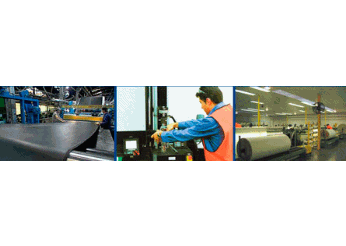


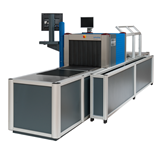

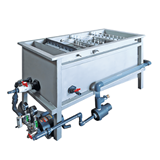
-160x160-state_article-rel-cat.png)







-160x160-state_article-rel-cat.png)


-160x160-state_article-rel-cat.png)
